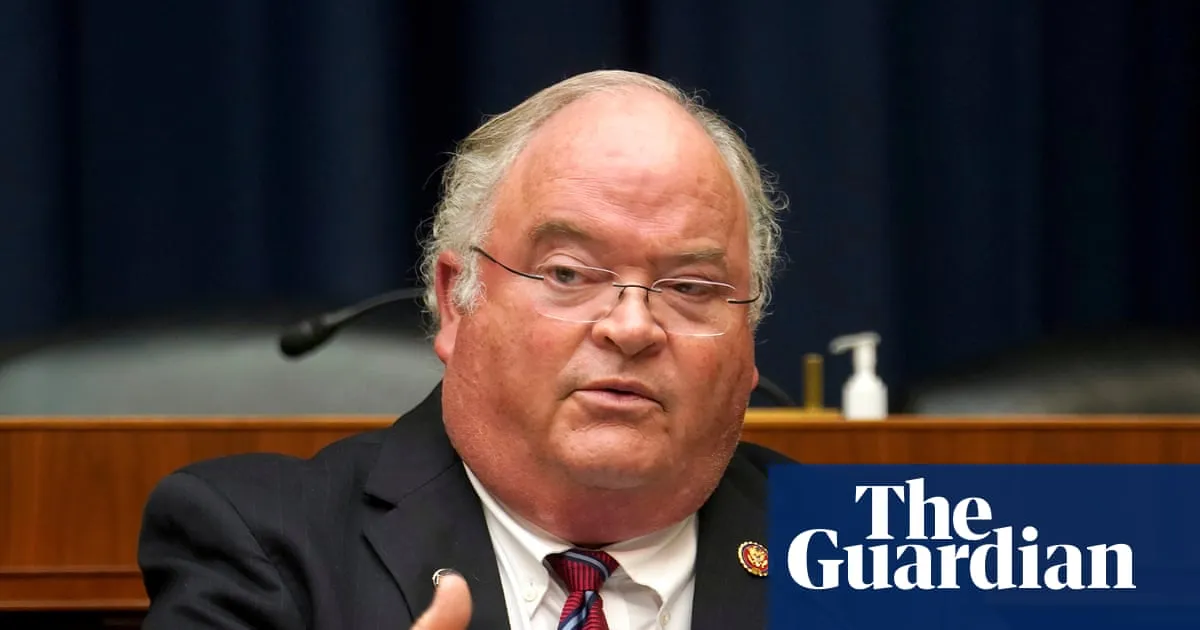
The recent removal of Internal Revenue Service (IRS) Commissioner Billy Long, just two months after his appointment, has raised eyebrows across the nation. According to reports, Long's dismissal followed a clash between the IRS and the White House regarding the use of taxpayer data to identify individuals suspected of being in the U.S. illegally. This situation highlights ongoing tensions within the federal tax collection agency and its role in immigration enforcement.
Long's tenure as the IRS commissioner is now recorded as the shortest in the agency's 163-year history, having been confirmed only two months prior to his dismissal. Following his exit, Treasury Secretary Scott Bessent has stepped in as the acting commissioner, marking him as the agency's seventh leader within the current year. This rapid turnover raises concerns about stability and direction within the IRS.
Reports indicate that the Department of Homeland Security (DHS) had sent the IRS a list of 40,000 names of individuals suspected of being in the country illegally. The DHS requested the IRS to crosscheck this list against its confidential taxpayer data to verify the addresses of these individuals. However, the IRS reportedly confirmed that it could verify fewer than 3% of the names on the DHS list, primarily those associated with Individual Taxpayer Identification Numbers (ITINs) provided by DHS.
In response to the administration's request for information on the identified taxpayers, the IRS declined, citing the importance of taxpayer privacy rights. This decision further fueled the growing tensions between the IRS and the White House, which has identified the IRS as a critical component of its efforts to combat illegal immigration. The administration aims to locate as many as 7 million individuals living in the U.S. without authorization, intensifying the scrutiny placed on both agencies.
In April, a data-sharing agreement between the DHS and the Treasury Department was established, intending to enhance cooperation in identifying undocumented immigrants. However, Long appeared to resist implementing this agreement, emphasizing that the IRS would not disclose confidential taxpayer information beyond its statutory obligations. White House spokesperson Abigail Jackson defended the IRS, asserting that any claims of discord between the agency and the administration were unfounded. She stated, “The Trump administration is working in lockstep to eliminate information silos and to prevent illegal aliens from taking advantage of benefits meant for hardworking American taxpayers.”
Interestingly, an analysis by the Institute on Taxation and Economic Policy reveals that undocumented immigrants contributed approximately $96.7 billion in federal, state, and local taxes in 2022. This includes around $59.4 billion directed to the federal government, which helps fund vital programs like Social Security and Medicare, despite these individuals being largely excluded from most federal benefits.
The pressure on federal agencies to align with the administration's priorities has also manifested in other areas, leading to demands for a mid-decade population review by the Census Bureau and the recent dismissal of the Bureau of Labor Statistics head following an unfavorable job report. This pattern of accountability has raised concerns about the independence of these agencies.
Following his dismissal, Long, a former six-term congressman from Missouri, announced his new role as the U.S. ambassador to Iceland. In a post on social media platform X, he expressed his gratitude to President Trump and enthusiasm for his new position, stating, “I am thrilled to answer his call to service and deeply committed to advancing his bold agenda. Exciting times ahead!” He humorously added that he initially wanted to join ICE, referencing the decision of actor Dean Cain to work with the agency.
This rapid series of events not only highlights the complexities of managing the IRS amidst broader immigration issues but also underscores the ongoing dialogue about taxpayer rights and governmental responsibilities in the face of political pressures.